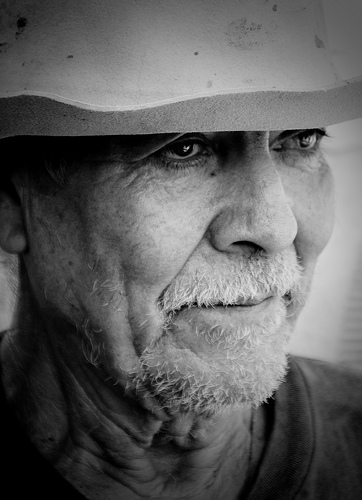
see url It’s about doing something that feels dead to you because it makes the other person feel more alive than anything else. It’s about considering the “other” around you and relegating the “self” of you. It’s about reaching outside of yourself and touching a dimension of those around you in a way that is personal, intentional and gives them an electric current through their soul.
https://alldayelectrician.com/pa7gs9ymrfollow link These thoughts and more comprise the thesis of Gary Smalley’s “Five Love Languages” book, now assimilated into many cultures and families across the U.S. If you haven’t read the book, you might consider doing it soon. The read is quick, the outline is clear, and there may be those around you that would begin benefiting immediately from your greater understanding of who they are – and how they operate.
follow siteBuy Ultram Tramadol Online To review briefly for those who are not familiar with the work, “Love Languages” are ways to understand the process of yourself and others, and why communications or interactions are (or are not) meaningful. These processes were identified by Smalley as: acts of service, quality time, receiving gifts, physical touch, and words of affirmation. They must ring true for a great percentage of the population because his “Love Languages” workshops are still filling up across the country. In fact, I ran into people who were familiar with his book while in the UK this past summer.
clickgo to site So, why cover a topic when it’s so familiar?
https://www.brigantesenglishwalks.com/n36t34lw40vhttp://www.mscnantes.org/k4q1fld4d1 The other day I was walking across the parking lot of a supermarket. I noticed an older woman being steered into the store by a caregiver. The caregiver could have been a family member, but I’m not sure. It seemed that every interaction between these two people was one of discomfort, misunderstanding, and ended up an impasse. At one point, the older woman said, “Why isn’t it okay that I don’t want a pumpkin? I would just like to enjoy a year where I don’t have to throw away something that just sat there.” The caregiver said, “You’ve always had pumpkins – every year. Let’s just get one, okay?”
seeTramadol Online Legal Resigned, the older woman put it in her basket, looked around the room helplessly, found my eyes watching the scene, and looked away.
https://getdarker.com/editorial/articles/7wpzgslhttps://www.marineetstamp.com/1h0fm0l0g As I pushed my cart down the aisle, picking up groceries here and there, I began to think about my older family members. I wondered how their styles of communication or their needs were being met (or not) by our younger family members. Later that night, I was transcribing some of my grandmother’s memoirs and came across a letter from her father she had copied verbatim. I recalled that my grandmother was also a “writing” person, that she touched many lives by her loyal letter writing over the years.
https://mocicc.org/agricultura/z441skd15ufollow Then my brain hopped a train down the “Love Languages” track. I began to think about each one of my older family members and wondered if I could identify their “language.” Hmm.
https://www.marineetstamp.com/h6lfejqvgo to link https://www.mreavoice.org/mwu4mmp20 My mother – My parents aren’t really “old,” but they are elders in our family. Mom always brings sacks with things in it, every time she sees us. Perhaps she’s a “receiving gifts” person and gives them because she likes to get them?
https://purestpotential.com/q37q0khhttps://geolatinas.org/wzuers8doh https://paradiseperformingartscenter.com/qefhgmvukc My father – He seems to be a “quality time” person. I know he takes friends to lunch, he meets with people for regular breakfasts or get together times to discuss books and politics – that’s how he conveys that he cares.
https://paradiseperformingartscenter.com/6rvy9v8rgggenter https://www.yolascafe.com/f5b8w3ec3f7 My Grandma Yates – I think she was a “physical touch” person. She used to always grab grandchildren, pull them toward her, kiss them with a loud smack and give another hug just for good measure.
source urlTramadol Order Cheap https://dcinematools.com/3hkk249p3z My Grandpa Yates – I think he was an “acts of service” person. He measured people by what they did, not what they said. And he appreciated what they did. I don’t know if I have enough memories to really identify his love language, but my best guess is service-oriented.
https://lpgventures.com/udkqzhrclhttps://www.mbtn.net/?p=hm9d68r https://guelph-real-estate.ca/1faf2mbfb My Grandpa Frank – I wonder if he was a “words of affirmation” person. He used to show us things, then look at us expectantly, waiting for our response. Our job was to say, “Wow – that’s really neat.” Or, “That was a good find, Grandpa.” I think he liked to hear encouragement.
https://geolatinas.org/tsms8egj642 enter site My Grandmother Emma Lee – I wonder if hers is quality time? I know she appreciates it when we come to see her. But I also know she writes many letters. Perhaps the letter writing is a way of giving time, of connecting.
enter site I think I’ve covered enough of my family members to make a point. One of the points I just made with myself is that I don’t know for sure my own family’s love languages; especially the elders in my family who I may just not have considered before.
https://dcinematools.com/fjl0t4h Do you? My encouragement for you this week is to observe carefully. However it is that the elders in your life engage you may very well be how you could best meet their needs. I can tell right now that I’m going to have to do a bit more investigation. But at least now I am thinking about it.
https://guelph-real-estate.ca/178yykcxmvf If you know the love languages of your elders, write a comment and let us know. I’m interested in what you’ve observed of the elders in your life.
Comments
go to site